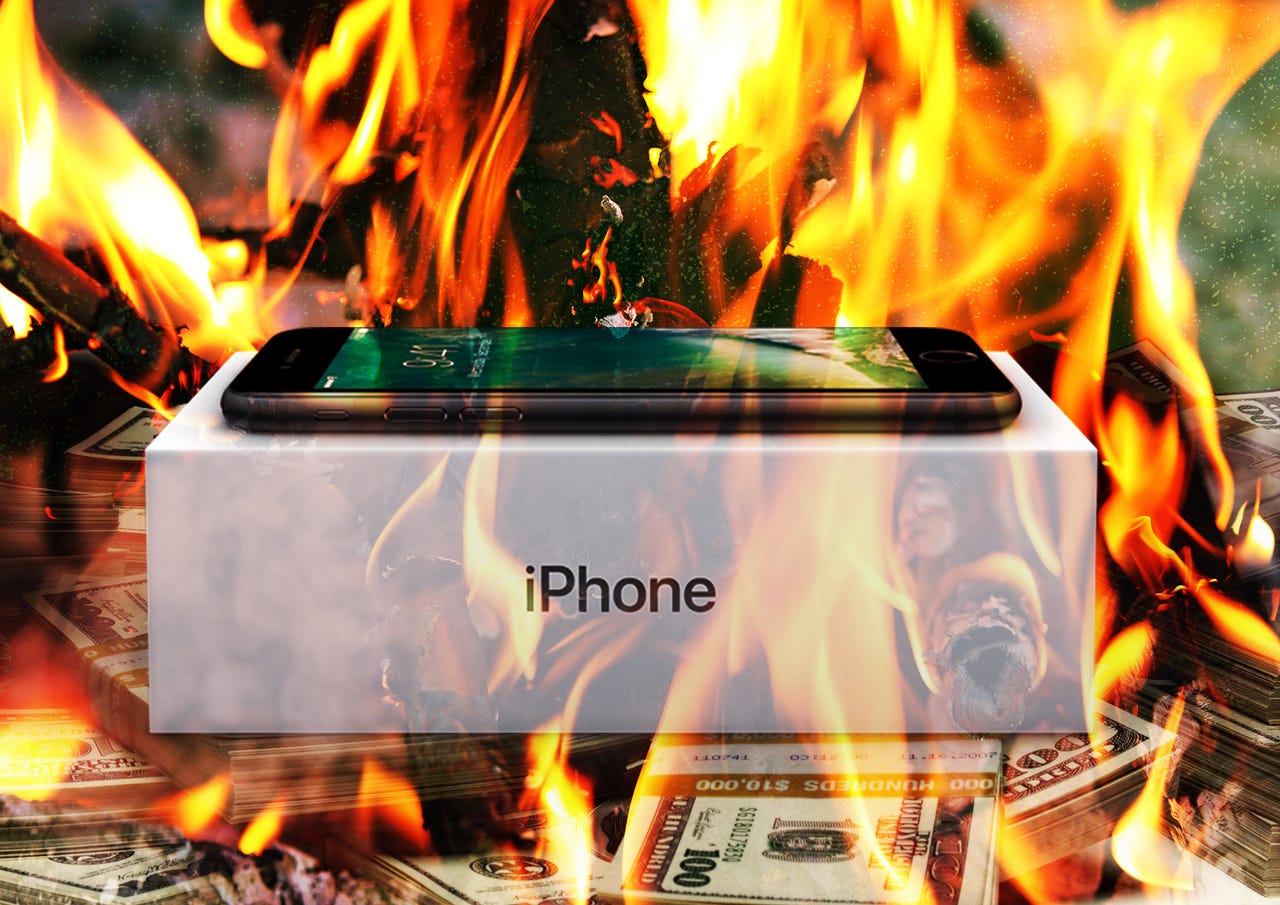Would you buy an iPhone if Apple doubled the price?


At $651, the average price of an iPhone is well above the worldwide $208 average cost of an Android smartphone.
Last year, my wife and I bought two top-of-the-line 128GB iPhone 6s Plus models, along with AppleCare. We knew what we were getting ourselves into. Still, after the four hour danse macabre that was buying a phone at the Apple Store, the two thousand dollar price tag for the two phones felt like a kick in the gut.
We're paying for them over time, with interest free financing, so it wasn't an immediate hit on the wallet. And yes, after 18 months we still find them very valuable. Even so, the premium Apple charge sometimes seems questionable.
Jason Perlow recently explored whether Apple's prices are worth it. He has a 256GB iPhone 7 for which he, too, paid more than a thousand dollars. But he's also been using a much less expensive ZTE Axon 7 Android phone. The Axon is -- you're going to need to sit down for this -- $600 less expensive than the iPhone.
Here's the kicker: Jason reports that the app-using experience is virtually identical. Gmail, Facebook, Outlook, and Twitter all feel the same between the two phones. Here's what he says is the bottom line observation:
When you start talking about a $400 to $600 difference in price, the mystique and perceived advantages of a brand and OS platform start to look a bit silly (especially when the mainstream apps are the same, behave effectively the same, and provide the same features).
That's a lot of money. Because Jason and I need to stay up-to-date on Apple gear as part of our jobs, we'll probably both pay the premium anyway. But will everyone? And what happens if the price of an iPhone doubles?
I can't imagine Apple would be that foolish, but then again I have two words: "Touch Bar." So, anything is possible. According to an article in AppleInsider, the entry level cost of the iPhone 8 may nearly double, to $1000.
The reason cited is that Apple may go to OLED display technology, instead of the LCD technology used on current iPhone 7s. Apple may also expand the screen to include the area of the home button, and implement Touch ID via the OLED display, very much like it does on the new MacBook Pro machines.
You'll recall that the base iPhone 7 is $649. If Apple makes the base price over a thousand dollars, then those devices with 128-256GB are likely to cost considerably more. Add in AppleCare, and you're looking at spending $1500 for a phone. Or you could get a solid Android phone for $400.
At that point, you have to ask yourself whether the $600 to $1100 premium is really worth it. Is it worth paying hundreds of dollars more to lose the home button? Frankly, I like the home button. But then again, I also like the headphone jack. I know the headphone jack. And you, Lightning dongle converter, are no headphone jack.
Apple lost at least three big sales from me this year. I'm definitely not made of money, but as a tech columnist and unrepentant geek, I tend to buy more gizmos and gewgaws than the average consumer.
However, Apple's very high prices, combined with disappointing features and performance problems, meant we didn't buy two top-of-the-line iPhone 7 devices, and I cancelled my MacBook Pro order. That's close to $5,000 I didn't spend on Apple products this year. For the prices Apple charges, the experience has to be transformative, not underwhelming.
So, what about you? Is the use of OLED and the removal of the home button compelling enough for you to pay almost double for an iPhone 8? Let me know in the TalkBacks below.
Best Android smartphones (February 2017)
You can follow my day-to-day project updates on social media. Be sure to follow me on Twitter at @DavidGewirtz, on Facebook at Facebook.com/DavidGewirtz, on Instagram at Instagram.com/DavidGewirtz, and on YouTube at YouTube.com/DavidGewirtzTV.